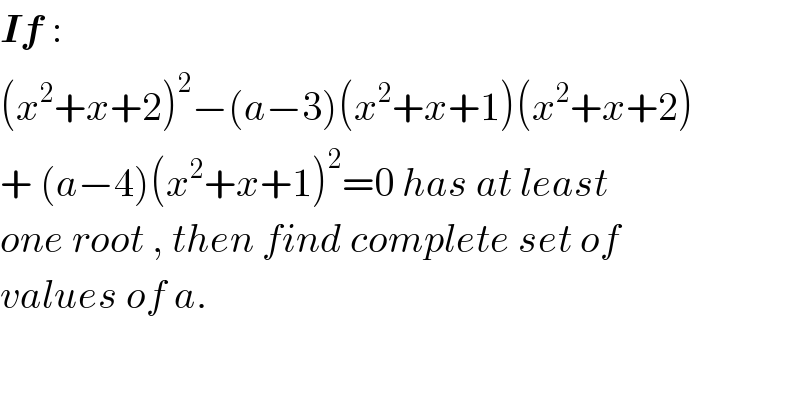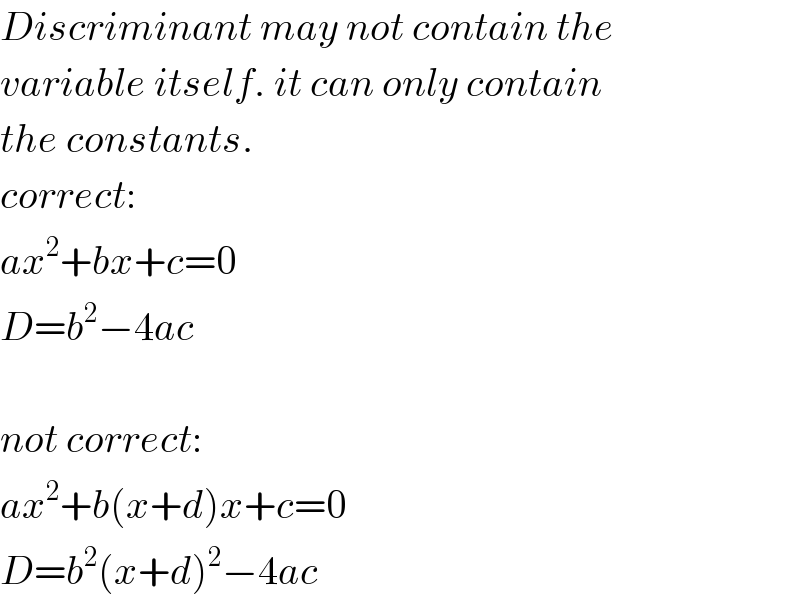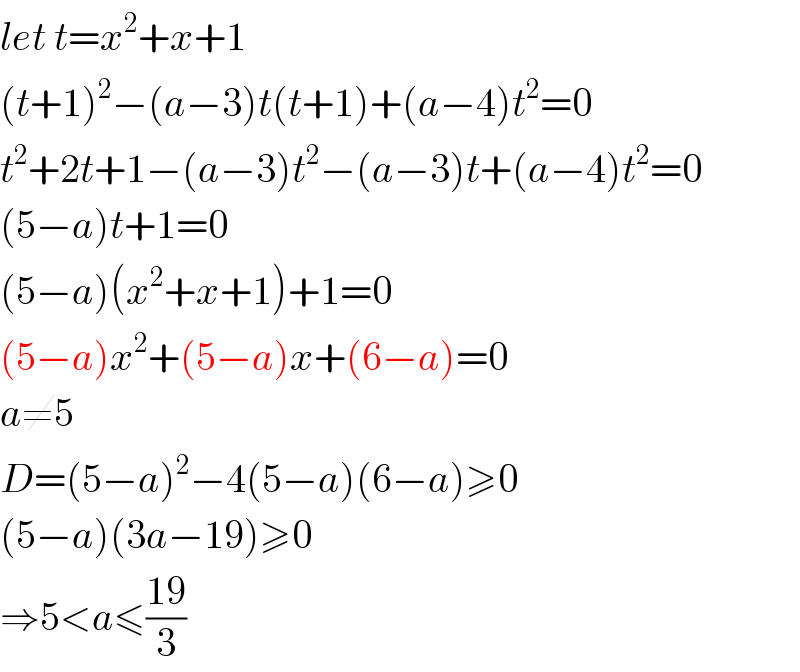
Question and Answers Forum
Question Number 31915 by rahul 19 last updated on 16/Mar/18

Commented by rahul 19 last updated on 16/Mar/18
![my try : let x^2 +x+1= t. ⇒ (t+1)^2 −(a−3)t(t+1)+(a−4)t^2 =0 since it has atleast one root, ⇒ Discriminant =0 ⇒(a−3)^2 t^2 −4t^2 (a−4)≥0 ⇒a^2 t^2 +25t^2 −10at^2 ≥0 ⇒t^2 (a−5)^2 ≥0 ⇒a≥5 ( t≠0) hence range = [5,∞). but correct ans. is (5,((19)/3)].](Q31917.png)
Commented by mrW2 last updated on 16/Mar/18

Commented by rahul 19 last updated on 18/Mar/18

Answered by mrW2 last updated on 16/Mar/18

Commented by rahul 19 last updated on 18/Mar/18

